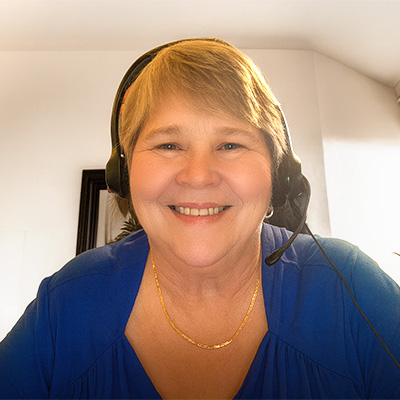Meet This Year's Heart of Case Management Award Winners
Keeping America’s workforce humming along is a critical component of the case manager’s role at Enlyte. Each year, these professionals are charged with ensuring thousands of American employees who sustain an injury on the job receive the care and resources they need to reach their highest level of improvement.
Now in its 10th year, the Heart of Case Management Award annually recognizes case managers who have made the greatest impact on the injured employees they serve. The national program honors Enlyte case managers who are highly regarded for transcending beyond their traditional job duties to improve the lives of thousands of injured employees each year.
To celebrate a decade of case management excellence, the contest has been expanded to eight winners, and a new category: customer awards. This year’s awardees were nominated from a field of more than 2,000 case managers across the country and judged on the following criteria: specialist, excellence, adaptability, trust, influential communication, critical thinking and outcomes. A special thanks to our customers who nominated four of this year's award winners.
The following are synopses of the winning entries. To hear the winners talk about their cases in their own words, check out their videos below.
Customer Division Winners
Field Case Management Award Winner Nominated by PMA
Joyce Bennett, RN, BSN, CCM, DOLCM-CTR
PMA Companies nominated Bennett for outstanding field case management and ability to streamline complex claims with efficiency and fairness. In one case, Bennett arranged a pivotal change of physician who confirmed the employee’s pain was not related to the original injury, an outcome that not only protected the integrity of the claim but also saved significant costs by preventing unrelated medical expenses. Bennett was cited for strong communication skills in helping build trust with all parties, guiding even the most difficult cases toward resolution. Her problem-solving skills and compassion helped deliver positive outcomes for both employees and clients.
Telephonic Case Management Award Winner Nominated by Sentry
Ingrid Duncombe, RN, MSN, CCM
Duncombe earned recognition from Sentry for helping an injured employee who had significant reservations about workers' compensation and was frustrated with slow recovery, return to work safely and with confidence, knowing his insurer was there to help. Duncombe built a trust-based relationship with the injured employee through proactive, timely communication and advocacy when appropriate. She kept the injured employee, employer, and Sentry informed throughout the process. Duncombe's compassion, empathy, and problem-solving skills, combined with clear guidance and knowledge of state-specific regulations, consistently moved the case forward to resolution, said Ashleigh-Rose Clark, the Sentry claims representative who nominated her.
"It's not just about Ingrid's employee advocacy and care, it's also about accountability and motivation, keeping injured employees engaged so they can return to work when it is safe to do so," said Clark. "Her comprehensive, balanced approach, helps enable trust and avoid costly return-to-work delays and potential litigation."
Telephonic Case Management Award Winner Nominated by FedEx
Andrea King, RN, CCM
King was nominated by FedEx for exceptional telephonic case management in supporting a courier recovering from a torn ACL. She coordinated timely surgery and rehabilitation while maintaining ongoing communication, reassuring the employee throughout recovery. Her proactive oversight helped the employee return to work ahead of guideline expectations, regain full function and resume normal activities, generating more than $9,300 in return-to-work (RTW) savings, benefiting both the employee and FedEx.
She also earned gratitude from her injured employee, according to FedEx nominator Nancy Chiesa, senior manager, workers’ compensation. "This injured worker reached out almost a year after his RTW praising Andrea King’s work and assistance: ‘I just wanted to thank you for everything you did for me to get me to surgery and through rehab. I have been doing everything I did before the injury pain-free.’ This personifies the FedEx model."
Field Case Management Award Winner Nominated by Starbucks
Christine McCurdy, RN BSN
McCurdy is valued by Starbucks for exceptional field case management through her expertise, compassion, and persistence. According to her nominee, McCurdy quickly identifies gaps in care, coordinates providers across multiple states, and ensures all treatment plans stay aligned. McCurdy was also recognized for her ability to communicate complex medical details in understandable terms, reducing confusion and providing reassurance to injured employees and their families. Her commitment and empathy allow McCurdy to move challenging cases toward full-duty release.
Colleague Division Winners
Tina Powers, RN, BSN, CCM
A full-time electrical assembler sustained a traumatic rotator cuff tear in his dominant shoulder, requiring surgical repair and extended recovery time. He also lived with several health and social challenges including obesity, hypertension, financial strain, and major depressive disorder, which intensified after injury. Once assigned to the case, Powers expedited MRI authorization and surgery scheduling, while also coordinating post-surgical therapy. Understanding the emotional toll of the injury, Powers worked to ensure the employee was engaged and motivated throughout rehabilitation. Her efforts resulted in the employee returning to full duty within five months, avoiding nearly 38 weeks of lost time and resulting in more than $46,000 in indemnity savings.
Dani Bilnoski, RN, CCM
A firefighter injured his lower back during training, resulting in severe pain from degenerative disc disease with radiculopathy into his leg. Recovery was complicated by multiple spinal injections, delays in treatment approvals and reinjury anxiety. After a few months with little progression, Bilnoski took over the case. A single father, the firefighter was deeply concerned about losing his job and, subsequently, no longer being able to support his son and serve his community. Bilnoski provided timely intervention by securing authorizations, coordinating complex care, helping transition the employee into a structured home exercise program, and supporting his emotional needs throughout recovery. Bilnoski’s persistence and guidance helped lead the firefighter to achieve full medical improvement, returning to active duty without restrictions. Her actions also generated over $14,000 in claim savings.
Carol Torres, RN, CCM
Workers’ compensation is difficult to navigate for any injured employee, but it’s significantly challenging when language barriers exist. A bilingual case manager, Torres made the difference in a case involving a foreign employee who sustained a traumatic foot injury requiring a below-knee amputation. Though recovery was further complicated by discovery of undiagnosed diabetes, Torres bridged communication gaps, directing proper transitional care from hospital to home health, while coordinating rehab services. She helped guide the employee through prosthetic fitting, physical therapy, and diabetes management, leading to full ambulation with a prosthetic leg. Within just six months, the employee reached maximum medical improvement (MMI) and returned home to Mexico with regained independence.
Carla Saunders, RN, BSN, CCM
As America’s workforce grows older, workers’ comp professionals face additional challenges as injuries are often exacerbated by comorbidities. This is why Saunders’ case management intervention was vital in helping a 78-year-old maintenance employee recover from a hip fracture that contributed to blood clots, pneumonia, and medical hardware failure. Saunders worked closely with the employee and his wife, providing education and emotional support, while expediting authorizations, scheduling with top specialists and coordinating transportation. With her persistence, the employee reached MMI, returned to work with restrictions, and regained independence with minimal pain. Saunder’s proactive management prevented setbacks and delivered significant medical and indemnity savings.
Case Management Resources
Field Case Management
In-person, direct case management to expedite recovery and return to work
Telephonic Case Management
Early telephonic early intervention program developed to promote optimal medical treatment and early recovery
Catastrophic Case Management
Specialized, nationwide catastrophic injury management program available 24/7





